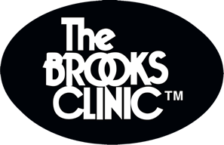
Should You Give A Recorded Insurance Statement?
Why is the Insurance Company Asking for a Recorded Insurance Statement?
Your own insurance company or the other driver’s insurance company may ask you for a recorded insurance statement. However, you can refuse the request from the other driver’s insurance company and it is unlikely it will hurt your claim.
On the other hand, your own insurance company may require you to provide a recorded statement about the accident and your injuries. That said, your policy may not require a recorded statement and may simply ask for a written statement. You should ask the insurance company why they want a recorded statement and what your policy says about it.
Timing of a Recorded Statement
You should always be seen by a medical doctor before you give your recorded statement. Giving it too early in the process could hurt your claim by limiting the extent of your damage. More details will come to light as the insurance company, doctor, and car repair company investigates the crash and the damage. If you make too many definitive statements in a recorded statement, they may be contradicted later.
For example, you may not feel a lot of pain in your back a few days after the crash, but things could get worse in the weeks and months that follow. If you do not identify back pain, you may have trouble obtaining compensation for the treatment and management of your pain.
Once you give a recorded statement, your claim can be limited by what you said. For example, if you say your injuries are not that serious or that you will be OK, the insurance company may use that as justification for reducing the value of your claim. They may be less inclined to provide fair compensation for future medical bills.
If you say something later in the process that contradicts what you said in the recorded statement, the insurance company may see you as untrustworthy. This may hurt your credibility and the insurance company may be harder to deal with.
There is generally not much benefit to providing a recorded statement, particularly if the statement is for the other driver’s insurance company. They have extra incentive to work against your best interests, as you are not one of their customers.
What to Say and What Not to Say
If you give a recorded statement, you need to be careful with what you say. If you are unsure about what you are being asked, ask for clarification. If you do not know the answer to a question, you can refuse to answer.
If the insurance company asks you whether you agree with a statement and you are not sure, you should not agree to it. Even an offhand comment like, “I guess so,” could come back to hurt you.
It is important to be consistent with all your statements. The insurance company will be looking hard for any inconsistencies in your statements. Insurance company representatives know how to word questions in a way that may work against your interest. Remember, they are not trying to be “bad people”, they are just protecting their own interest
Most personal injury victims often do not realize the insurance company is working against them. The people they talk to on the phone may sound nice and they may even say they are there to help. When you’ve had an auto accident, you must be realistic about protecting your interest.




